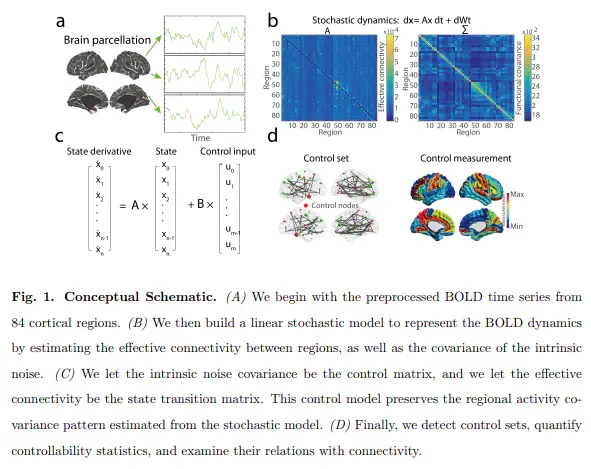Controllability analysis of functional brain networks

Abstract
Network control theory has recently emerged as a promising approach for understanding brain function and dynamics. By operationalizing notions of control theory for brain networks, it offers a fundamental explanation for how brain dynamics may be regulated by structural connectivity. While powerful, the approach does not currently consider other non-structural explanations of brain dynamics. Here we extend the analysis of network controllability by formalizing the evolution of neural signals as a function of effective inter-regional coupling and pairwise signal covariance. We find that functional controllability characterizes a region’s impact on the capacity for the whole system to shift between states, and significantly predicts individual difference in performance on cognitively demanding tasks including those task working memory, language, and emotional intelligence. When comparing measurements from functional and structural controllability, we observed consistent relations between average and modal controllability, supporting prior work. In the same comparison, we also observed distinct relations between controllability and synchronizability, reflecting the additional information obtained from functional signals. Our work suggests that network control theory can serve as a systematic analysis tool to understand the energetics of brain state transitions, associated cognitive processes, and subsequent behaviors.